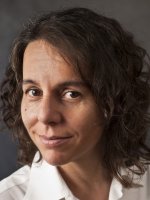How bacteria and cancer cells regulate mutagenesis and their ability to evolve
to

Susan M. Rosenberg, Ph.D.
Ben F. Love Chair in Cancer Research and Professor
Baylor College of Medicine
Dr. Rosenberg is a molecular biologist and geneticist who studied phage lambda and mechanisms of DNA recombination in E. coli during her Ph.D. work with Frank Stahl (University of Oregon) and postdoctoral work with Miroslav Radman (University of Paris). Since 1997, she has been on the faculty at Baylor College of Medicine and working on E. coli. Her lab demonstrated that the molecular mechanisms of mutagenesis are activated by stress responses. These elements increase genetic diversity when cells are poorly adapted to their environments. Her lab also studies mechanisms of DNA repair and genome instability. Her demonstration that mutagenesis is regulated changes the understanding of genomic plasticity, host-pathogen adaptation, antibiotic resistance, and cancer development.
Summary
For 50 years the world believed that mutations occur at random. The discovery of stress-induced mutagenesis has changed ideas about mutation and evolution and revealed mutagenic programs that differ from standard spontaneous mutagenesis in rapidly proliferating cells. The stress-induced mutations occur during growth-limiting stress, and can include adaptive mutations that allow growth in the otherwise growth-limiting environment. The molecular mechanisms of stress-inducible mutagenesis vary, but they share common components that underscore the non-randomness of mutation: (1) regulation of mutagenesis by cellular stress responses, which promote mutations when cells are poorly adapted to their environments; (2) restriction of mutagenesis in genomic space causing mutation hotspots and clusters. Today’s lecture will focus on a molecular mechanism of stress-induced mutation in E. coli and its parallels to mutagenesis underlying human cancers.
This page was last updated on Wednesday, August 11, 2021